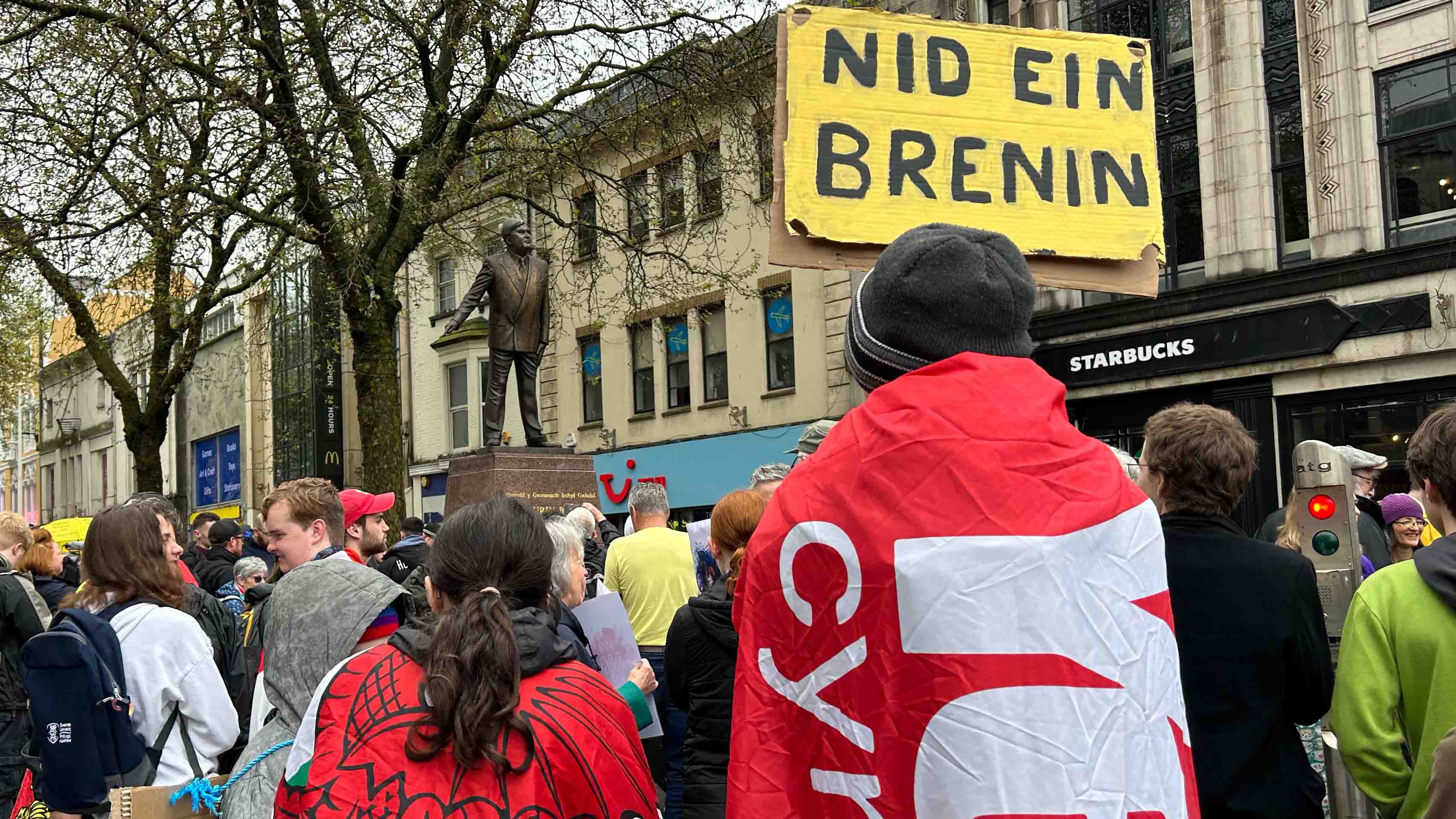After hundreds of campaigners gathered in Cardiff to protest the Coronation of King Charles III. What’s behind their discontent with the monarchy?
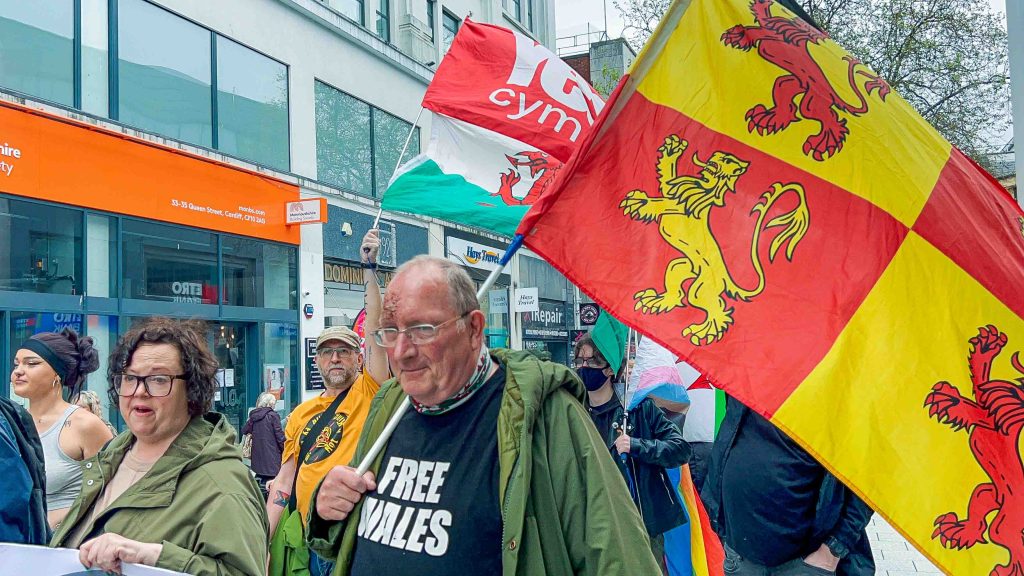
Hundreds of protestors gathered in London demanding the abolishment of monarchy just as King Charles III was crowned as the monarch in Westminster Abbey. Sloganeering against the crown, and chanting ‘Not my king’, the protestors were in for a shock as six of them were arrested and scurried away in handcuffs.
However, almost 240 Km away from London, no arrests were made as the normal bustle of Cardiff’s Queen Street was overtaken by chants of “not my king” and “down with the crown”. Holding placards against the crown and draped in Welsh flags the protestors said, “No thanks, I’m Welsh.”
“He’s not my head of state,” says Gwenno Dafydd, the Master of Ceremonies of the protest. “He’s been foisted upon us.”
Around 29% of Welsh people are against the Monarchy, according to a YouGov survey, with a greater number, aged between 18-24 supporting an elected head of state. A similar NatCen survey showed that support for the monarchy is at its lowest ever across the United Kingdom.
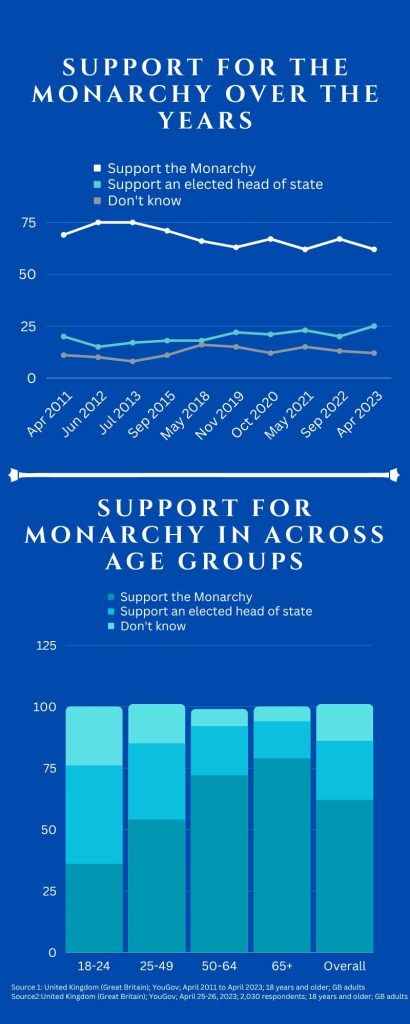
For most of his life, Charles held the title of Prince of Wales after his investiture ceremony in 1969 at Caernarfon Castle where he undertook some of his oath in Welsh.
He has since made philanthropic and charitable contributions to the nation but campaigners feel that it was purely ceremonial.
Cymru Republic Member Bethan Sayed Says, “I mean he was Prince of Wales, so if he couldn’t spend some time in Wales and do some promotional activities, then I would be very surprised.”
“Part of the pomp and circumstance around the royals is that they have visits and this is just a part of the ceremonial process,” she says. “It was something that was always going to happen just as the new prince is trying to get around now and show his face, it’s just the same old PR operation.”
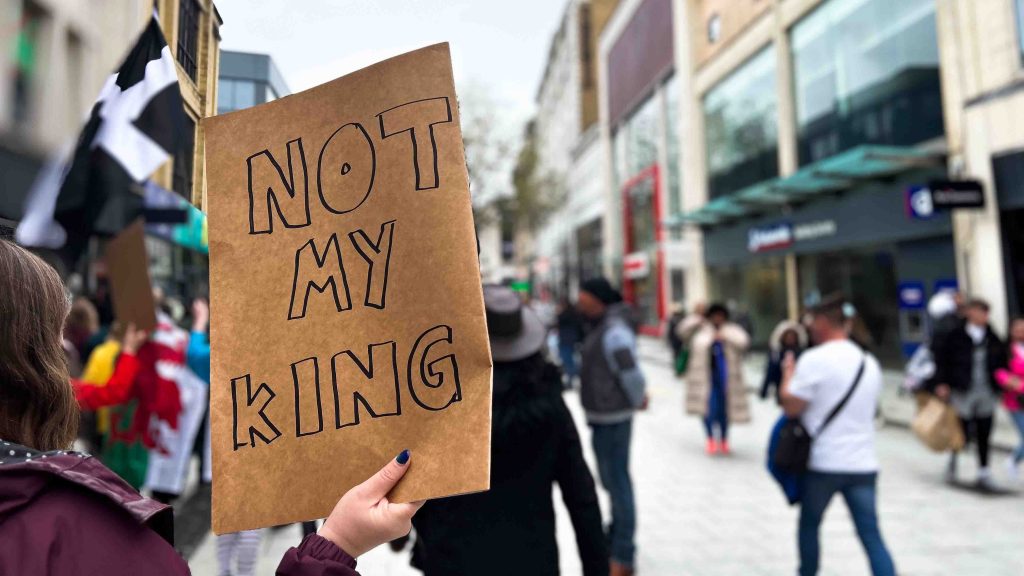
There were renewed calls for the abolition of the title as Prince William was set to inherit it after Charles became King.
In October last year, the Gwynedd Council in North Wales became the first Welsh council to vote for its abolishment.
Michael Sheen, a prominent Welsh actor has been a vocal opponent of the title and monarchy and says that he relinquished his OBE title to air his views on the institution.
“There’s more than one story in these isles,” says Sheen. “The tradition that Edward I began by naming his son, Prince Edward, as the Prince of Wales was as a sort of symbolic act of rebuke, punishment, and humiliation, some would say, of Wales with the intent to stop a Welsh nation developing and emerging, which was the dream of Owain Glyndwr.”
Campaigners attribute this growing discontent to the money spent on the institution and how it differentiates the public from the monarchy.
Dafydd says, “I think people are fed up with being serfs. We are expected to curtsy and bow to these people who are incredibly rich and I’m curtsying and bowing to no one.”
“I am as good as anybody else and so is everybody else in this country. I can’t bear this hierarchy of power and wealth, we want to actually embrace our individualism.”
The King’s coronation was funded by taxpayer money, with conservative cost estimates ranging from £50m – £100m and more liberal estimates reaching a staggering £250m.
Campaigners feel that such an expense on the monarchy amid rising inflation, cost of living, and economic downturns in the country further highlights its indifference to the public.
Labour for Republic Chair Nick Call says “It’s about £250 million at a time of crisis in the country when people are not able to afford to feed and clothe their kids; it’s a disgrace.”
“Whilst we, for example, have to obey all the laws of the country, the monarchy is exempt from 260 of them, they don’t pay tax, hundreds of people who work in royal households are low paid, and are not protected by the Equalities Act.”
The rate of inflation in the UK still sits in double digits at 10.1%, while the rate of food inflation in the country rose at the fastest rate in 45 years sitting at 10.4% currently.
Sayed says that the public is not aware of the true wealth of the monarchy and that the royal family has actively lobbied the UK government not to release that information.
“So when you hear monarchists say that the monarchy is economically beneficial to the UK. Well, on what basis?” says Sayed. “Because we do not have the facts on what the monarchy spends or own here in the UK. That is not what I call democracy.”
“People say it’s an extreme form of campaigning but there’s nothing extreme about wanting to take people out of poverty, about wanting to have a fair society, about expressing our opinion about the future of the UK, if we’re still part of it,” she says.
“There’s nothing we should be afraid of to voice our opinions if we did end up having, like some of us want, an independent Welsh republic. That is what we dream of!”
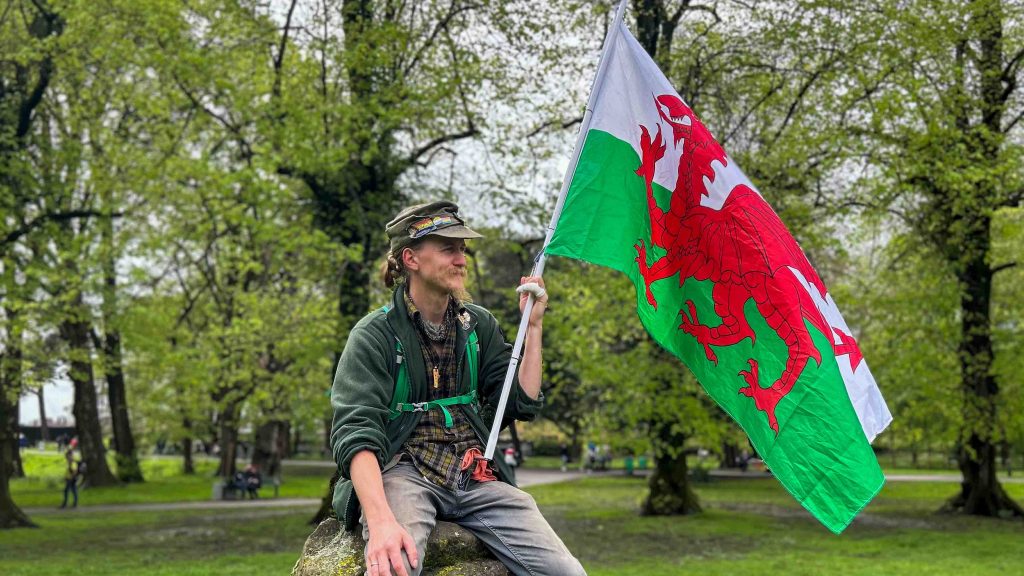
Some believe that King Charles’ public image coupled with the country’s economic troubles is the reason for the decline of the monarchy in Wales, and does not hold the same authority as his mother, the late Queen Elizabeth II.
A Cardiff Socialist Party Chair, Dave Barrett said, “The Queen offered a certain neutrality to everybody in the impression that she gave. The Impression of Charles is regarded as a little bit more unreliable. I doubt he holds the authority the Queen did.”
“But the big difference as well is that when the Queen came in 1953 Britain was an entirely different place. There was still an empire, the idea of unity existed, the NHS was new, and the council houses were being built with full employment,” he said. “Today, when he’s been crowned, it’s the opposite. The NHS is going backwards, there are no council houses that are been built, and the inflation is super high.”
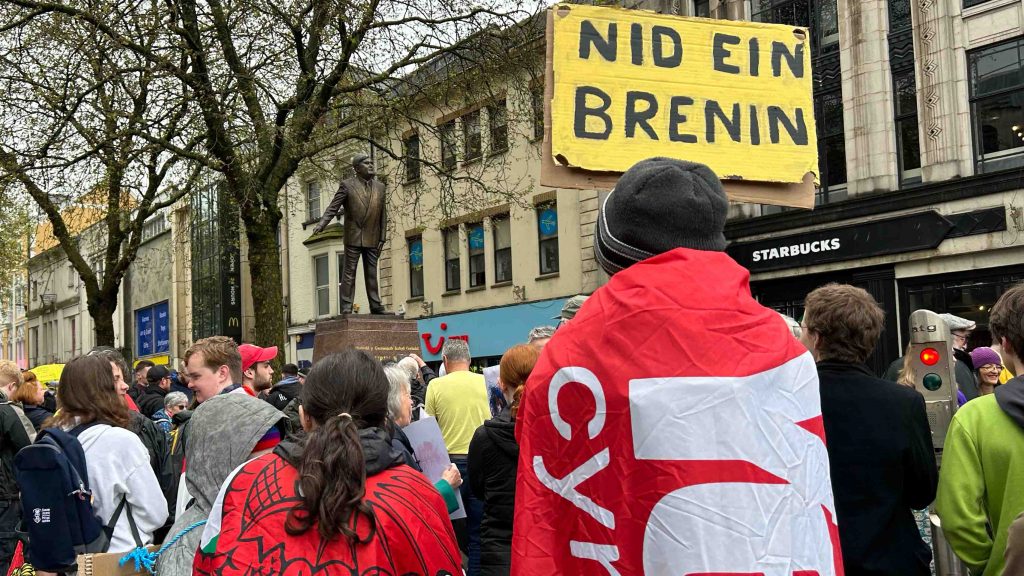
Welsh republicans also believe that the monarchy hasn’t done enough to address its role in colonisation and the slave trade, and thus want to distance Wales from the institution.
In the months leading up to the coronation, people from former colonies made renewed calls for the UK government and the royal family to re-examine their colonial history and role in the slave trade.
In April, the King authorised independent research for exploring the royal family’s ties with slavery but campaigners argue that as long as monarchy exists conversations around colonisation cannot happen.
Grabina Devinash of Black Lives Matter Cardiff says, “ As long as the monarchy still stands, the horrors of colonisation will never be addressed. They will never be fully seen for what they were. ”
“A lot of people talk about the monarchy as a time-old tradition and in many ways it is,” says Devinash. “It’s a tradition of trading slaves, of exploiting and genocide in the global south, a tradition of invasion in the Middle East— not our traditions but of the elite.”
“We need to continue to fight to create a fair society and a fairer Wales. He is not our king and will never be our king because he is not up there for us.”
Sayed says she feels ‘appalled’ at the use of crown jewels in the ceremony adding that Wales too, needs to acknowledge its role in colonisation.
“That’s why we here today are saying not our King … you know these jewels belong in a different place far, far away,” says Sayed. “They should be repatriated and the monarchy should be apologising for all the time they ruled over India, Africa, and many other places across the world, it’s not something that we should be celebrating.
“It’s a public embarrassment for many of us and we should take collective responsibility for that and reflect on our histories,” she says. “Even people who in Wales were part of the oppression during colonialism weren’t silent bystanders.”
“Wanting to do right on that is partly why this campaign exists now. To try and not only look at what it means to Wales but it can be a positive influence internationally.”
